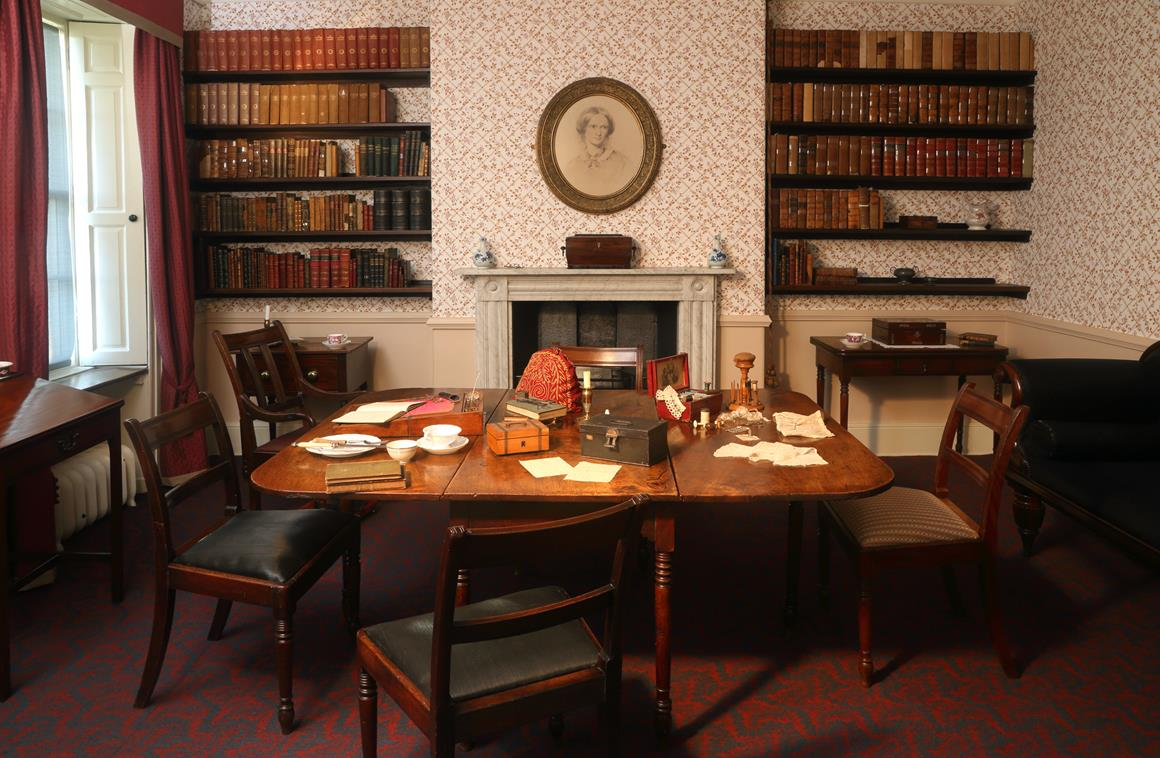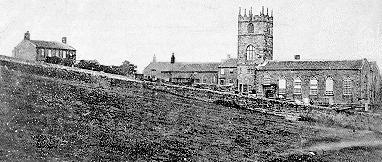The devotion of Charlotte Brontë to Thackeray, or rather to Thackeray’s genius, is a pleasant episode in literary history. In 1848 he sent Miss Brontë, as we have seen, a copy of Vanity Fair. In 1852 he sent her a copy of Esmond, with the more cordial inscription which came of friendship.
TO W. S. WILLIAMS ‘Haworth, October 28th, 1847.
‘Dear Sir,—Your last letter was very pleasant to me to read, and is very cheering to reflect on. I feel honoured in being approved by Mr. Thackeray, because I approve Mr. Thackeray. This may sound presumptuous perhaps, but I mean that I have long recognised in his writings genuine talent, such as I admired, such as I wondered at and delighted in. No author seems to distinguish so exquisitely as he does dross from ore, the real from the counterfeit. I believed too he had deep and true feelings under his seeming sternness. Now I am sure he has. One good word from such a man is worth pages of praise from ordinary judges.
TO W. S. WILLIAMS
‘December 11th, 1847.
There are moments when I can hardly credit that anything I have done should be found worthy to give even transitory pleasure to such men as Mr. Thackeray, Sir John Herschel, Mr. Fonblanque, Leigh Hunt, and Mr. Lewes—that my humble efforts should have had such a result is a noble reward.
‘I was glad and proud to get the bank bill Mr. Smith sent me yesterday, but I hardly ever felt delight equal to that which cheered me when I received your letter containing an extract from a note by Mr. Thackeray, in which he expressed himself gratified with the perusal of Jane Eyre. Mr. Thackeray is a keen ruthless satirist. I had never perused his writings but with blended feelings of admiration and indignation. Critics, it appears to me, do not know what an intellectual boa-constrictor he is. They call him “humorous,” “brilliant”—his is a most scalping humour, a most deadly brilliancy: he does not play with his prey, he coils round it and crushes it in his rings. He seems terribly in earnest in his war against the falsehood and follies of “the world.” I often wonder what that “world” thinks of him. I should think the faults of such a man would be distrust of anything good in human nature—galling suspicion of bad motives lurking behind good actions. Are these his failings?
They are, at any rate, the failings of his written sentiments, for he cannot find in his heart to represent either man or woman as at once good and wise. Does he not too much confound benevolence with weakness and wisdom with mere craft?
‘But I must not intrude on your time by too long a letter.—Believe me, yours respectfully,
‘C. Bell.








